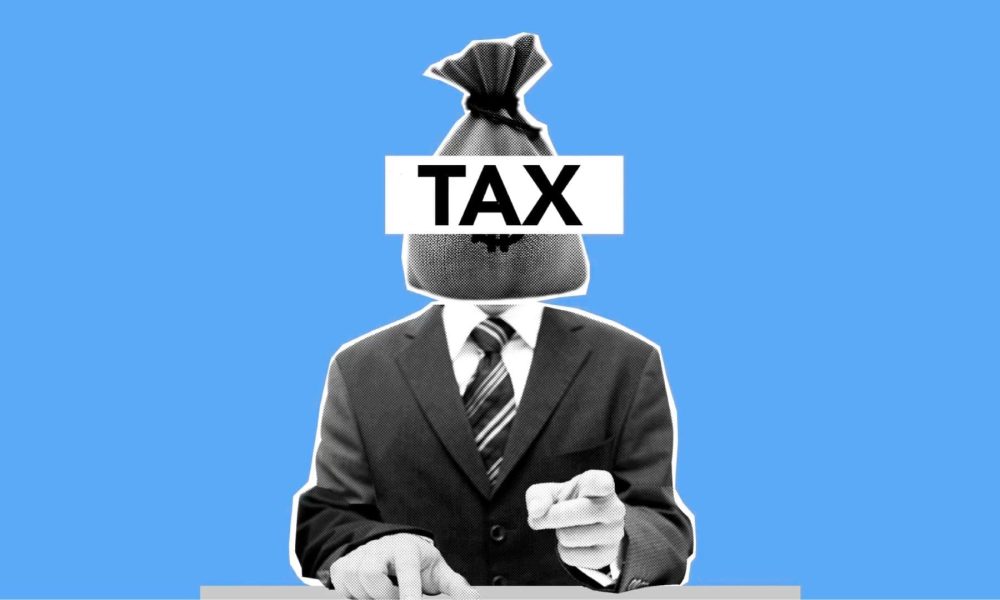Let’s face it—tax anxiety is real. Between the endless paperwork, the looming deadlines, and the fear of making a costly mistake, tax season stress can take a serious toll. If you’ve ever found yourself stuck in a cycle of procrastination, overwhelm, or avoidance, you’re definitely not alone. But the good news? You can feel calmer, more grounded, and even a little more confident this tax season.
Table Of Content
Mindfulness and meditation offer a powerful path toward tax season stress relief. In this post, we’ll explore how to use these tools to manage the overwhelm, break free from freeze mode, and reframe your relationship with taxes—so keep reading for practical tips to file your taxes without anxiety.
What Is Tax Anxiety?
Tax anxiety—sometimes called “tax-iety”—is the stress or apprehension many people feel when it’s time to file taxes. This emotional response often stems from uncertainty, fear of making mistakes, or the pressure of looming deadlines. For some, it manifests as avoidance or procrastination; for others, it’s a persistent worry about audits or owing more than expected.
Unlike general stress, tax anxiety can disrupt daily routines and lead to feelings of overwhelm. Understanding and acknowledging this form of anxiety is the first step toward managing it effectively. By recognizing the signs, individuals can take proactive measures to reduce tax season stress and approach filing with greater confidence.
Why Does Tax Season Trigger So Much Anxiety?
Tax anxiety often stems from a mix of stressors. Taxes are time-consuming—on average, filing takes around five hours. Add in the possibility of making expensive mistakes, feeling unorganized, or discovering that you owe more than you expected, and it’s no wonder tax season can feel overwhelming.
If you’re one of the 64 million Americans who freelance or run a business, managing multiple forms and expenses can heighten the pressure. But managing tax filing anxiety isn’t just about paperwork—it’s often about mindset, too.
Taxes can stir up deeper emotional triggers tied to financial security, scarcity, or even shame. It’s easy to fall into negative self-talk or fear-based thinking. But since taxes aren’t going anywhere, learning to handle tax anxiety in healthier ways is essential for your mental and emotional well-being.

How Mindfulness Helps with Tax Anxiety
Mindfulness isn’t just about staying calm—it’s a practical tool for managing tax filing anxiety and making more intentional financial decisions. According to this SSRN study, financial mindfulness—staying aware and accepting of your current financial state—can lower emotional reactivity and reduce stress around money.
Here’s how mindfulness and meditation can help you find real tax season stress relief:
Regulate the Nervous System
If taxes trigger a “freeze” response, you’re not alone. A meditation like Find Refuge in Meditation When Lost on the Siddha Meditate app combines breath awareness with a body scan to gently bring your system back into balance. Even 15 minutes a day can boost focus and reduce overwhelm.
Release Anxious Thoughts
Journaling meditation is a powerful way to process tax anxiety. Writing down fears—no matter how irrational—can make them easier to confront and neutralize. Add in affirmations to reframe your thoughts and shift from panic to possibility.
You can also read “The Benefits of Journaling for Mental Health“
Encourage Self-Compassion
When you’re stressed about money or past mistakes, it’s easy to spiral. Mindfulness practices can help you zoom out, recognize your growth, and forgive yourself. Self-compassion is one of the most underrated tips to reduce tax anxiety.
Reframe Your Perspective
It helps to remember that taxes support public services like schools, libraries, and emergency responders. Reframing tax season as a time of reflection and contribution can ease resentment and bring peace of mind.
Challenge Negative Beliefs
Tax time can highlight insecurities about money management or success. Mindfulness encourages awareness of those limiting beliefs—and tools like guided meditations or affirmations can help you rewrite them into something more empowering.

Top Tips to Reduce Tax Anxiety (Right Now and Later)
Whether you’re in the thick of filing or just starting to think about it, small shifts can go a long way. These mindful, actionable tips are here to help you stay focused, ease stress, and move forward with more clarity.
Tips for Managing Tax Filing Anxiety Right Now:
- Use a checklist. Break tasks into bite-sized steps to avoid overwhelm.
- Start small. Use the Pomodoro method to chip away at your to-do list.
- Ask for help. A tax professional can offer clarity—and peace of mind.
- Use technology. Tax software or AI tools like ChatGPT can simplify your workload.
- Prioritize stress relief. Daily meditation, movement, and breathing practices help you stay grounded.
Preventing Tax Anxiety in the Future:
- Create a money system. Find a budgeting style that fits your life and stick with it.
- Track deductible expenses. Use apps or review expenses monthly to make filing easier.
- Practice financial mindfulness year-round. Stay connected to your money habits without judgment.
Handling Tax Anxiety Beyond April
Remember, tax anxiety is just one piece of the money stress puzzle. Up to 90% of Americans say finances stress them out. By building emotional resilience and prioritizing mental fitness, you’ll be better equipped to face any challenge—tax-related or not.
- Make aligned lifestyle shifts. Budgeting isn’t about restriction—it’s about values. You can still nurture connection and joy without overspending.
- Use affirmations to combat shame. Try: “I have the tools I need to create financial well-being.” Or: “My challenges have prepared me for success.”

Creating a Stress-Free Tax Filing Experience
Let’s pull it all together with a few last, practical tips for a stress-free tax day:
- Start early – Giving yourself lots of time to complete and file your taxes helps decrease feelings of urgency, making it easier to manage tax filing anxiety. Starting earlier can also make it easier to split large tasks across multiple days.
- Stay organized – Keep tax documents you receive in the mail in a designated place. Have a system in place for filing physical receipts you might need later. If you have multiple streams of income, a spread sheet can help you track what paperwork you need and where it’s located.
- Ask for support – If you can, invest in your peace of mind with professional tax help. If that’s not possible, find resources online or in your community that can make filing your taxes easier.
- Use technology – Take advantage of tax filing software and apps that can help you itemize deductions. You can even use AI like Chat GPT for research, just make sure you double check information before you act on it.
- Pair it with something fun – Filing your taxes doesn’t have to be a solitary experience. Make a date of it, and use the financial clarity to set goals and make plans for the next year.
- Practice mindfulness – Use mindfulness to process feelings of anxiety and to avoid falling into the pitfalls of avoidance, procrastination and denial.
Final Thoughts
If tax season fills you with dread, you’re not alone. But you can learn to handle tax anxiety with grace, clarity, and calm. Every moment you invest in mindfulness—whether it’s through a journaling session, a 10-minute meditation, or simply taking a deep breath—helps you create a healthier relationship with your finances.

The Siddha Meditate app is here to support you with daily, expert-designed practices that turn stress into strength and overwhelm into clarity. And remember, just by reading this, you’ve already taken the first step toward tax season stress relief—you’ve got this.
FAQs about Tips to Reduce Tax Anxiety
1- What is tax anxiety, and why does it happen?
Tax anxiety is the stress or unease many people feel during tax season. It often stems from fears of making mistakes, owing unexpected amounts, or facing audits. The complexity of tax laws and the pressure of deadlines can amplify these feelings, leading to procrastination or avoidance. Understanding this form of anxiety is the first step toward managing it effectively.
2- How can mindfulness help reduce tax season stress?
Mindfulness practices, such as meditation and focused breathing, can help calm the mind and reduce the overwhelm associated with tax filing. By staying present and acknowledging anxious thoughts without judgment, individuals can approach tax tasks with greater clarity and composure. Regular mindfulness can transform tax season from a source of stress into an opportunity for reflection and growth.
3- What are some practical tips to reduce tax anxiety?
To handle tax anxiety, try breaking tasks into smaller steps, using a checklist, and starting early. Ask for help from a tax professional or use trusted software. Practicing mindfulness daily can also bring much-needed relief during tax season.
4- Can meditation improve my approach to tax filing?
Yes, meditation can be a valuable tool in managing the stress associated with tax filing. Regular meditation helps in cultivating a calm mindset, enhancing focus, and reducing reactive emotions. This mental clarity allows for more thoughtful decision-making and a more organized approach to handling taxes.







